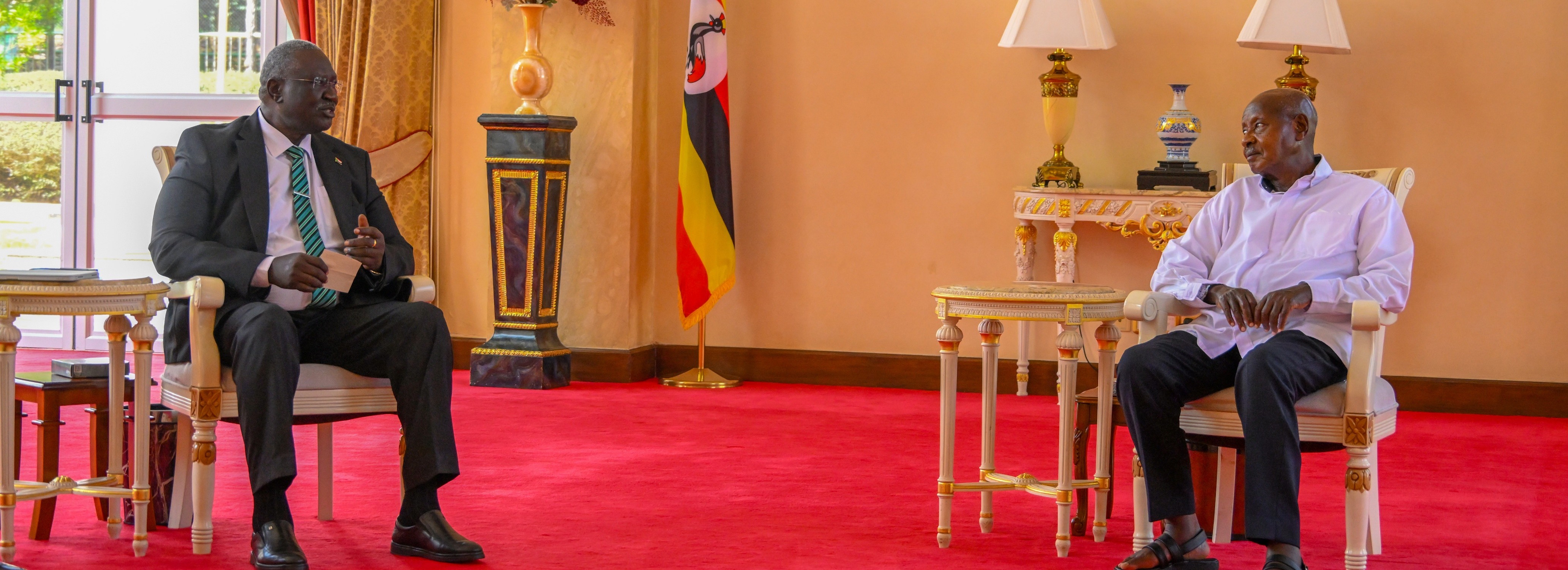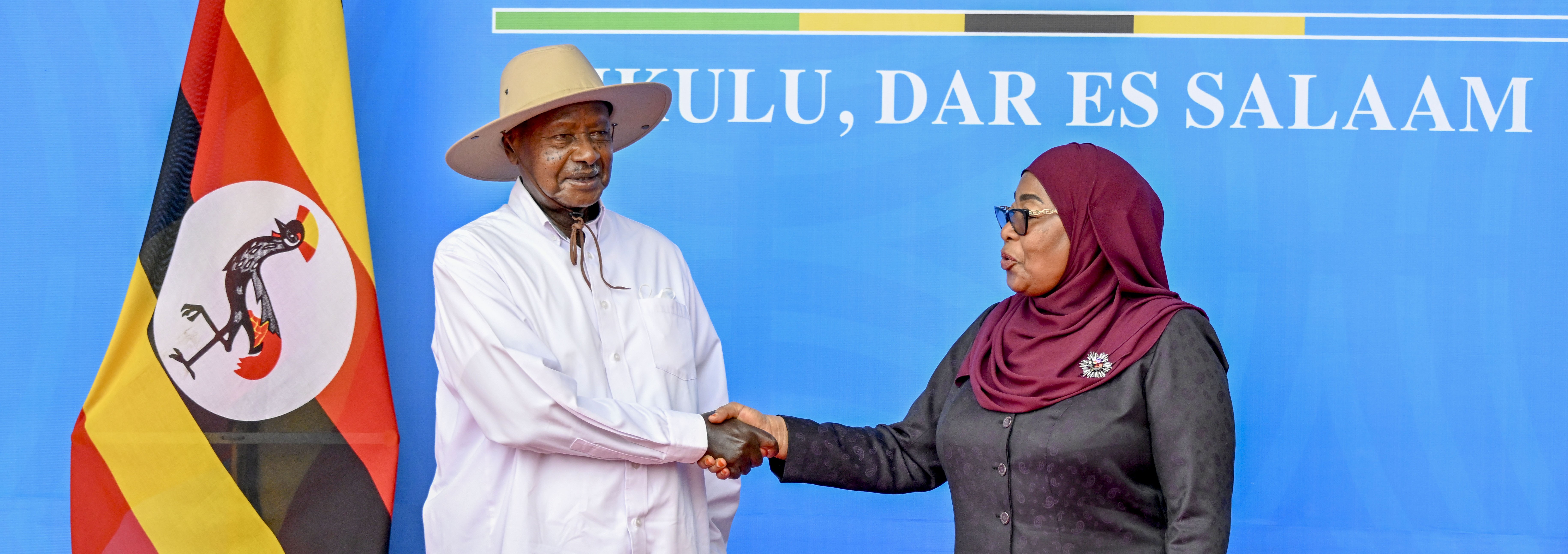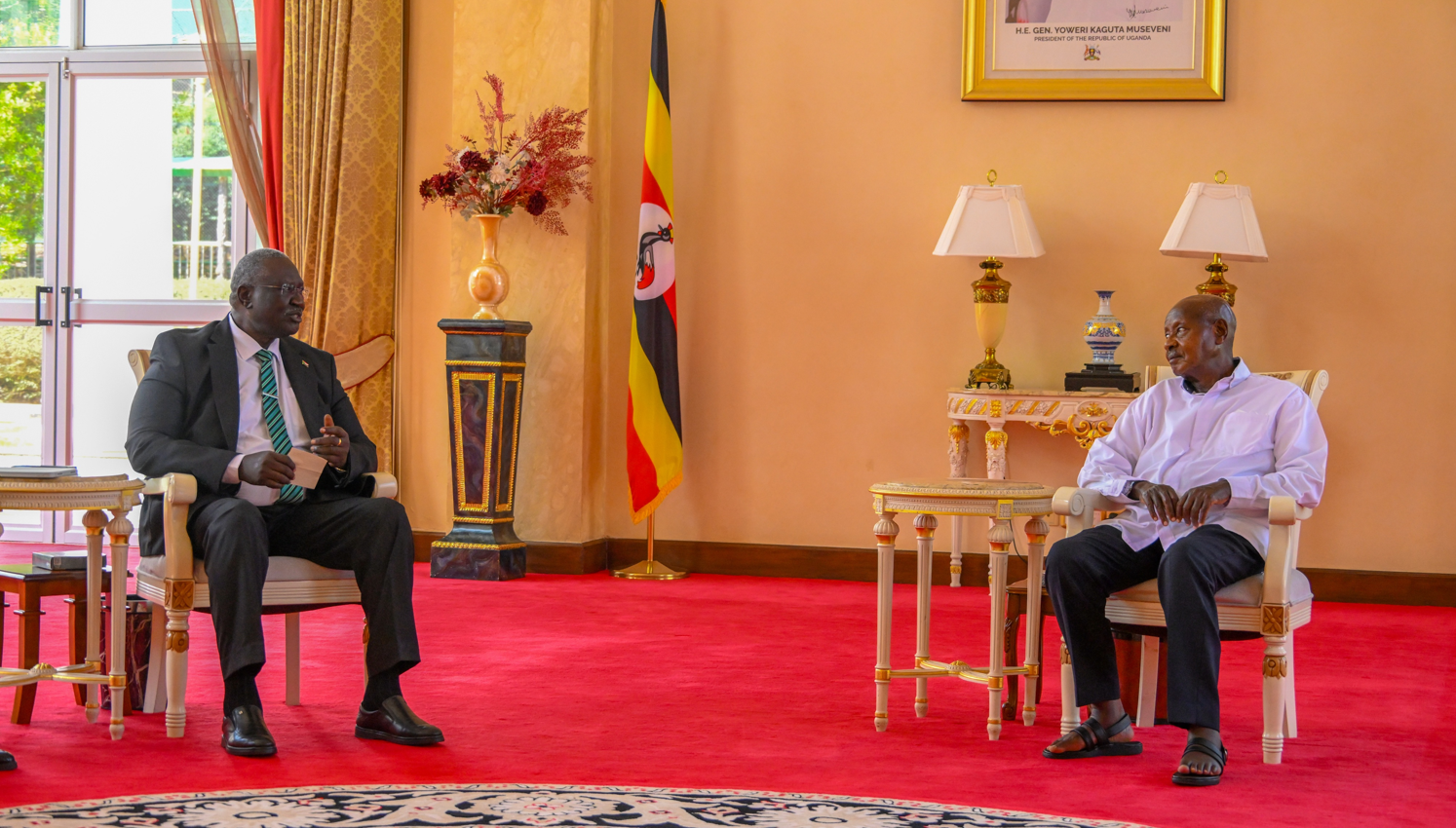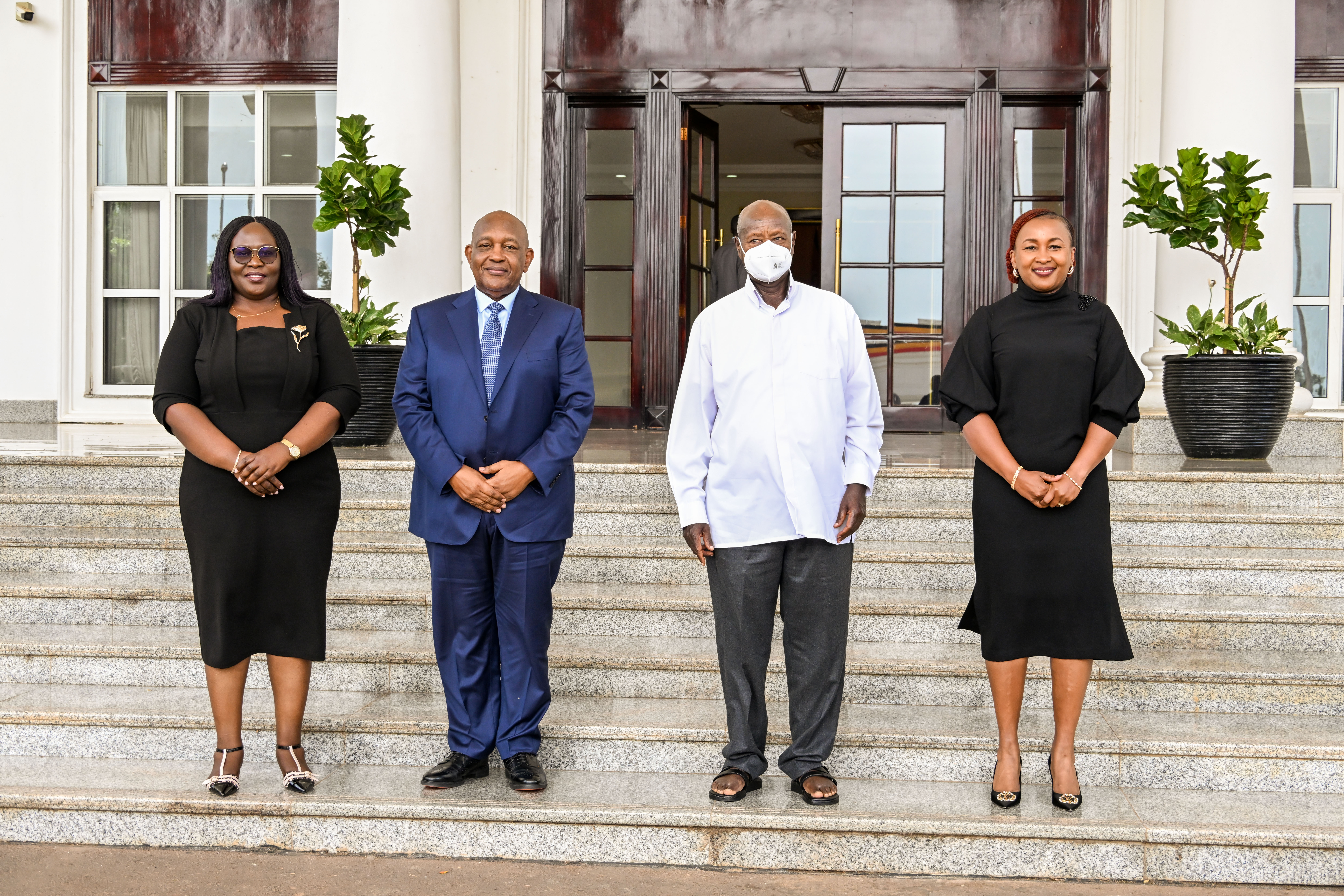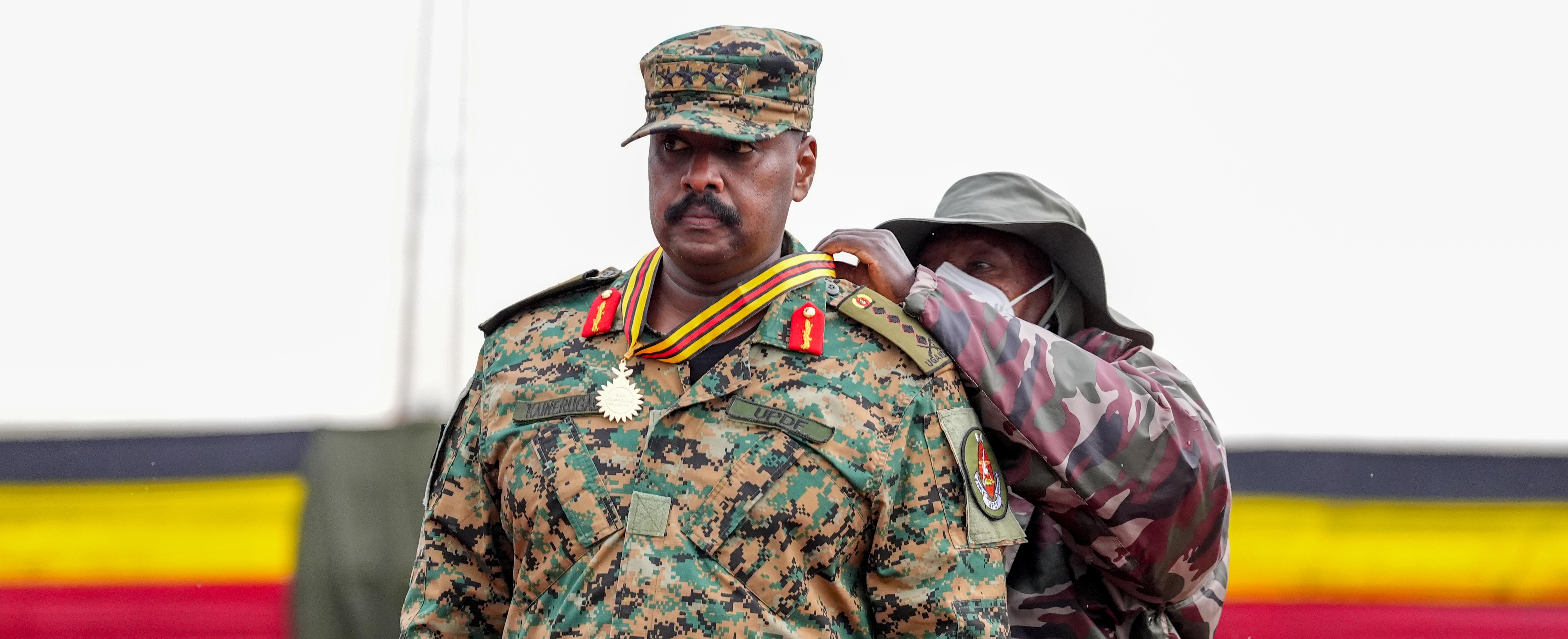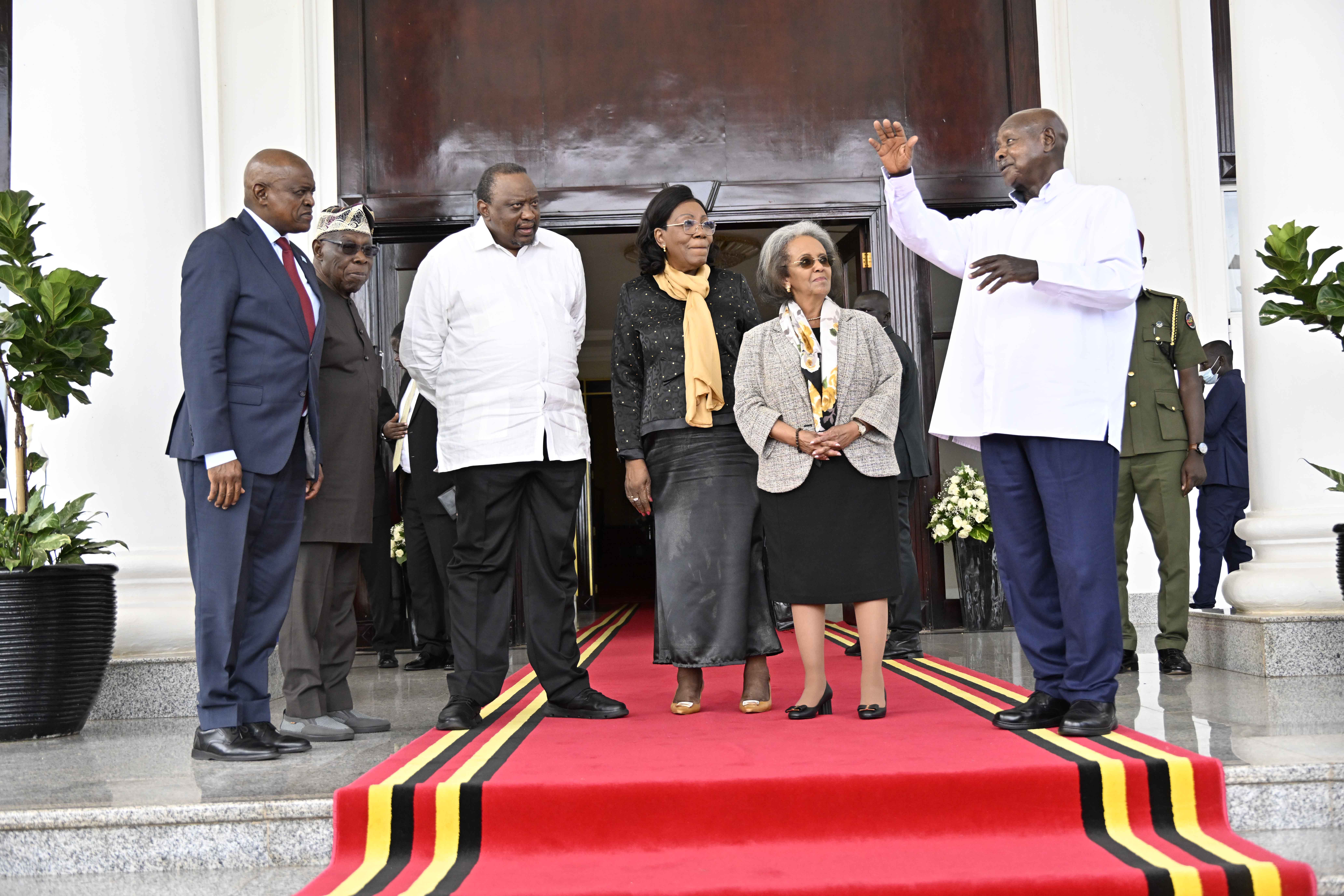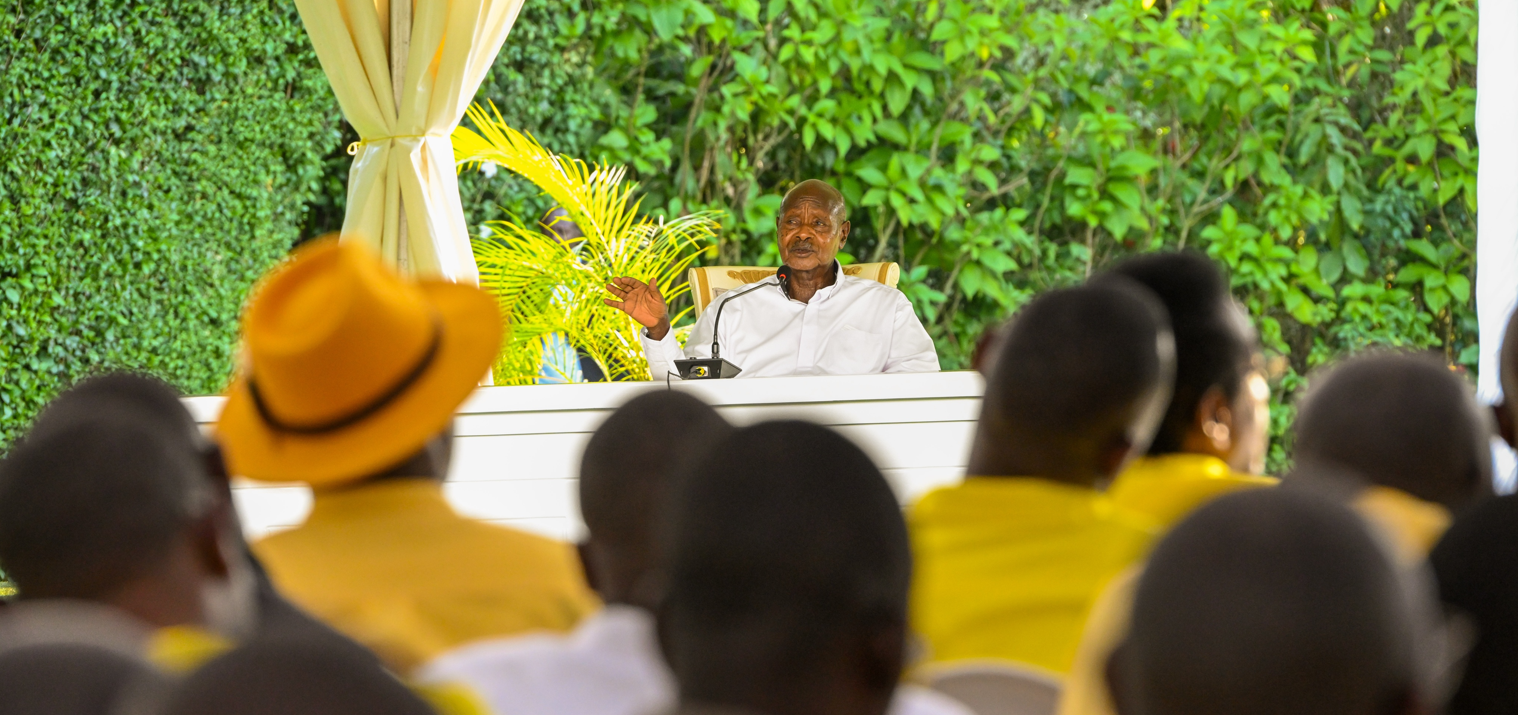
PRESIDENT MUSEVENI URGES NRM CHAIRPERSONS TO PROMOTE WEALTH CREATION, ACCOUNTABILITY AND SERVICE DELIVERY
President Yoweri Kaguta Museveni yesterday evening met with the National Resistance Movement (NRM) Chairpersons for districts, cities, municipalities, and divisions at State House Entebbe. During the meeting, President Museveni, who is also the National Chairman of the NRM, congratulated the leaders upon their victory in the recently concluded elections. The President also noted that he detected greater national cohesion in the recent elections compared to previous cycles, likening it to the unity witnessed during the 1996 elections, where, he noted, the population strongly rallied behind the NRM due to its problem-solving approach. He explained that this cohesion was built on what he described as “okukyenura” — leadership that responds to people’s needs — citing the restoration of security through a disciplined army and the stabilization of essential commodities such as sugar in the early years of NRM governance. The President said that after 1996, new challenges such as household poverty became more visible, prompting the introduction of revolving funds at sub-county level in 1997 to support wealth creation. He noted that subsequent interventions, such as NAADS were rolled out to distribute seedlings and boost agricultural productivity, though a significant percentage of the population remained outside the money economy. This, he said, led to the introduction of the Parish Development Model (PDM), designed to send funds directly to beneficiaries and empower parish committees to determine allocation transparently. He observed that PDM is performing well in some districts and more funding will be added to enhance its impact, thus urging party leaders to closely monitor its implementation. On education, President Museveni said the NRM foresaw a looming crisis and introduced free education to expand access, but expressed concern over what he termed as sabotage by some teachers, as well as insufficient oversight by leaders. He also raised concerns about corruption, particularly within some District Service Commissions accused of selling jobs, cases of land grabbing, and theft of medicines from government health facilities. He urged NRM leaders to intensify supervision and ensure accountability. The President further criticized poor road maintenance and substandard works, attributing part of the problem to weak budgeting priorities, including the creation of new districts and municipalities at the expense of services that directly benefit the masses. On job creation, President Museveni emphasized agriculture as the primary source of employment, with manufacturing and services generating higher-value jobs. He pledged that in the coming term, he will produce more literature focused on addressing the needs of the masses and consolidating socio-economic transformation. He stressed that beyond programs such as PDM and Emyooga, there is a need to strengthen the private sector through affordable financing, particularly via the Uganda Development Bank (UDB), to enable enterprises to expand. President Museveni added that once production challenges are resolved, attention must shift to markets, noting that local consumers are the first buyers. Increasing household incomes, he said, will stimulate demand for products such as milk, cement and steel, eventually necessitating expansion into regional markets. The NRM Deputy Secretary General, Hon. Rose Namayanja, congratulated President Museveni on what she described as a landslide presidential victory, saying it reflects the NRM’s commitment to visionary leadership and service delivery. The NRM Chairperson for Gulu District, Mr. Christopher Ochen, thanked the President for empowering party structures to effectively campaign during the elections, which he said contributed significantly to the overwhelming support. He requested that district chairpersons be incorporated into District Executive Committees to enhance their capacity to supervise government programs. Mr. JB Wamala Ssalongo, NRM Chairperson for Mukono Municipality, appealed for municipality and city chairpersons to be represented on the National Executive Committee, similar to their district counterparts, to ensure inclusive participation in party decision-making.


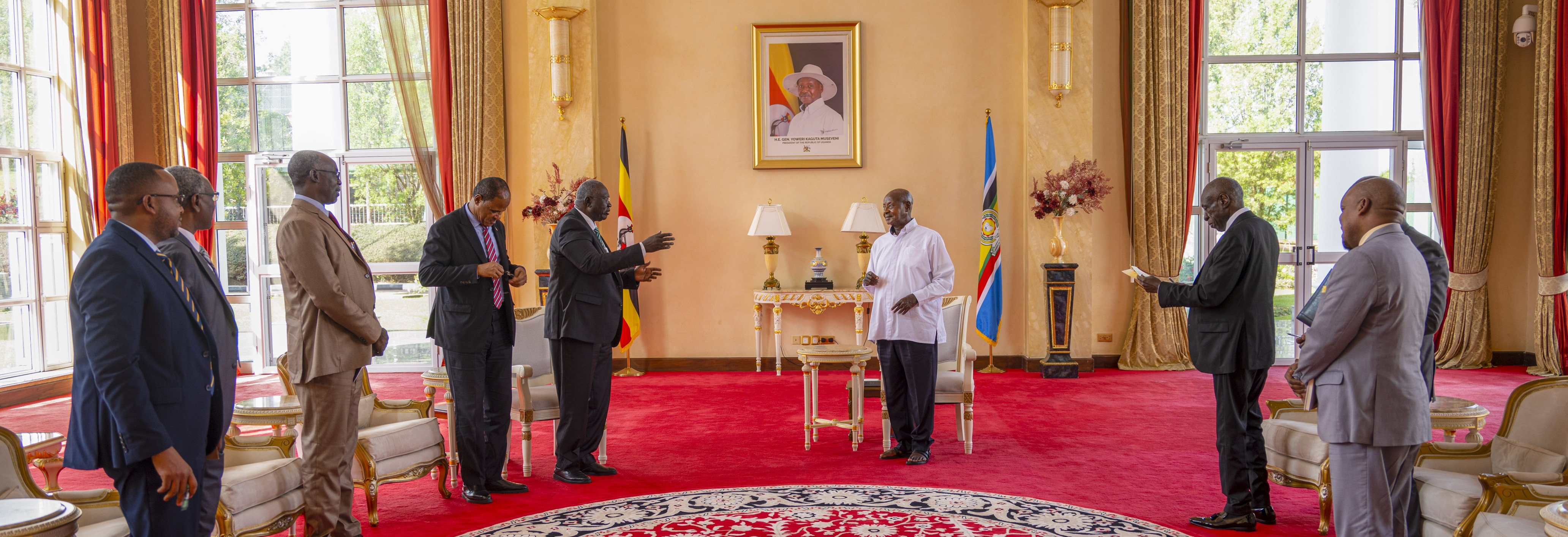
.jpeg)
